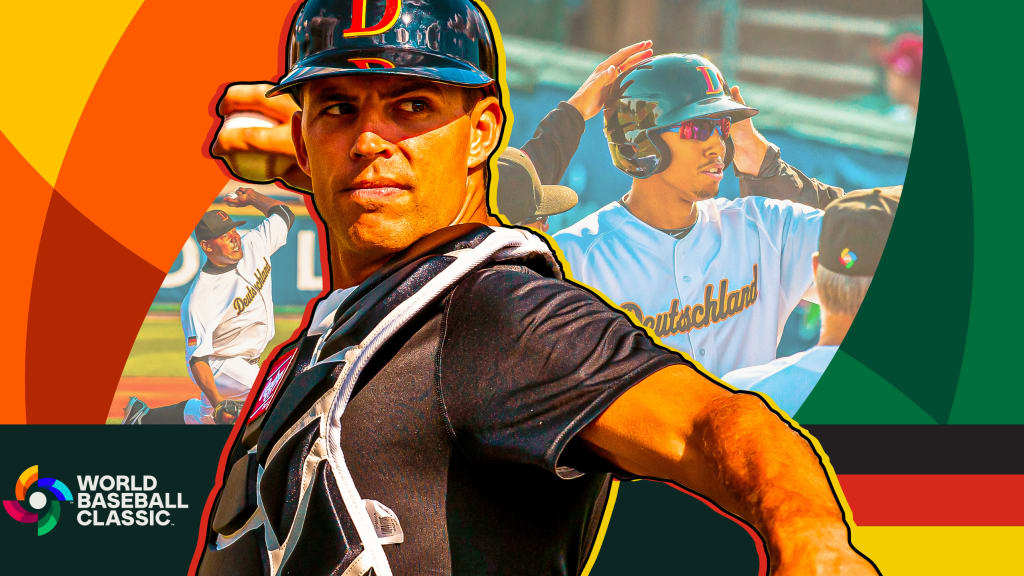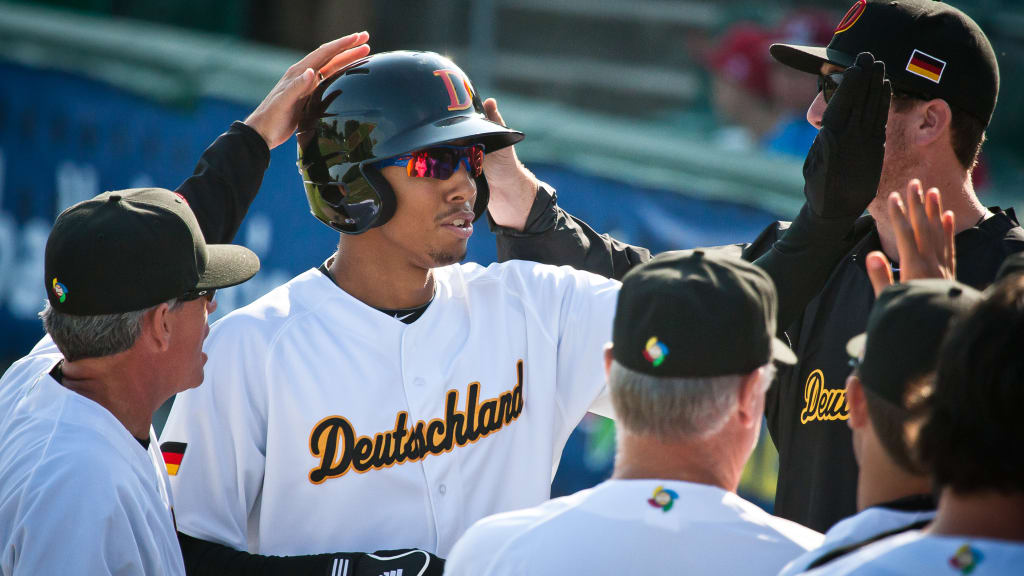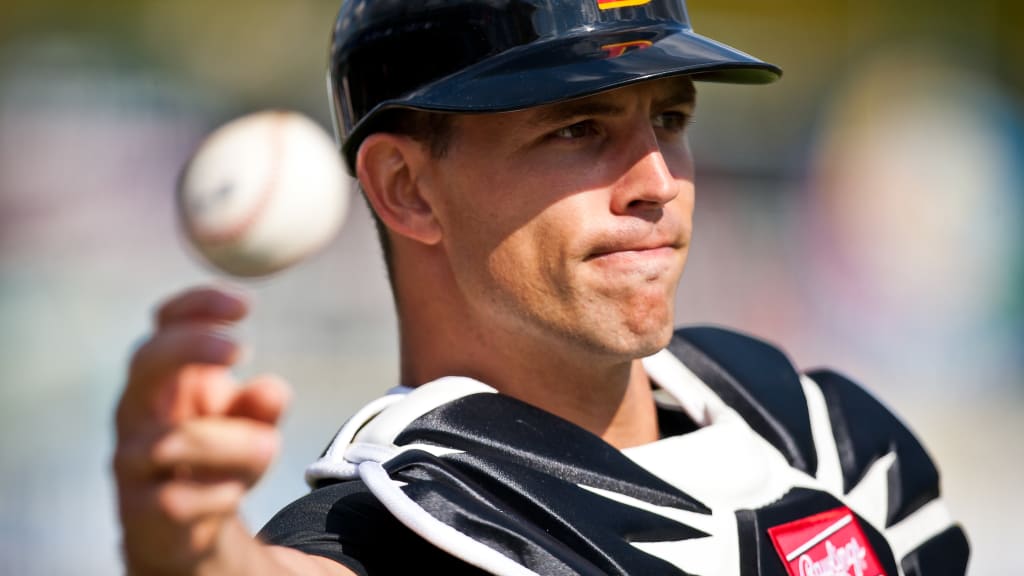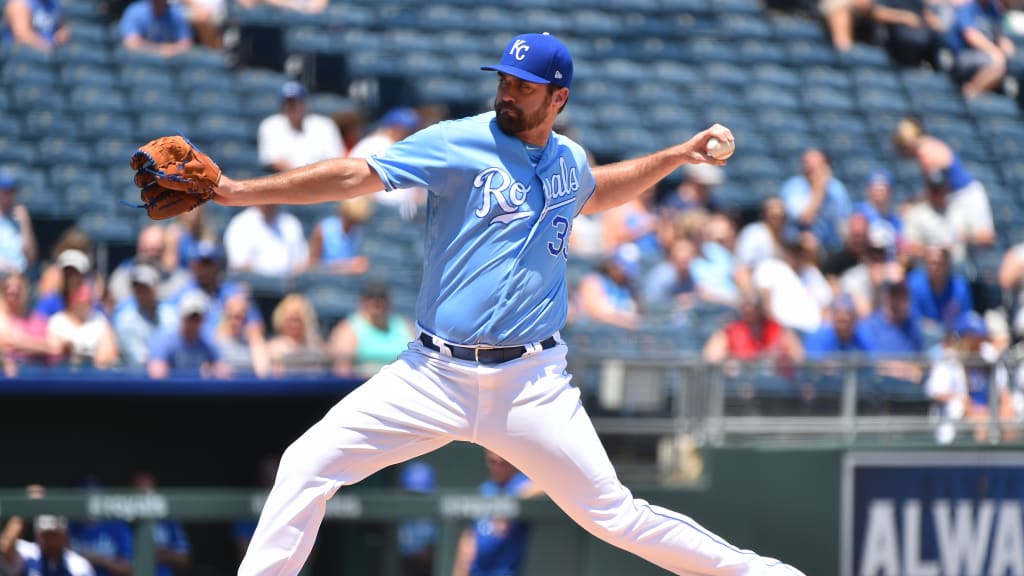
Will Ohman, the former Major League pitcher and two-time member of the German National Team at the World Baseball Classic Qualifiers, was once walking in his national team hoodie. A woman walked past him and did a double take.
"Where did you get that?" she asked, incredulous. "There's no baseball in Germany!"
"I think a lot of people don't know that we're actually playing. It's just tough," catcher and team captain Simon G¨¹hring told me in a recent Zoom interview from Heidenheim, where the national team was training. "Here in my hometown, we're in the newspaper a lot, sometimes we're on TV, so people here know about baseball even if they're not coming to the games. But if you go outside of those cities that have baseball, I think it's very under the radar."
With the World Baseball Classic Qualifiers set to begin at the picturesque facilities in Regensburg on Friday, the German National Team is set to prove that not only is there plenty of baseball in the country, but that it can be a powerhouse on the global stage. Germany nearly made it to the WBC tournament in 2013. After defeating the Czech Republic and Great Britain, Germany fell to Canada, 11-1, in the finals. Four years later, it went 0-2 and was bounced early from the 2017 Qualifier in Mexico. This year, though, two teams will advance and Germany plans on being one of them.
"Our expectation is that we're one of the top two teams in the tournament. We have home-field advantage and we are pretty happy with our roster," Philipp W¨¹rfel, the head of public relations for the German Baseball and Softball Federation (as well as the former editor-in-chief of the hugely important Mister Baseball European baseball site), said.
"To be frank, our plan is to play two games," former Major League pitcher Brian Flynn said ahead of his international debut with Germany. "We'd like to go out and win Game 1 and then just take that easy route and win that next game, instead of going through the extra games and everything. In our minds, we're ready to play two games and book a ticket for March."
Baseball is nothing new in Germany. Originally introduced by American servicemen following World War II, there are now 15 teams in the Baseball Bundesliga -- Germany's semi-professional baseball league -- where the Bonn Capitals recently took home the title after defeating the Paderborn Untouchables in 4 games. There are 38 more clubs broken into four regional districts in the second division below. Some of these team names are truly inspired, with monikers like the Ratingen Goose-Necks, Neunkirchen Nightmares, and Heidelberg Hedgehogs deserving iconic status on name alone.
The Dohren Wild Farmers, despite hailing from a small village of just 1,200 people, regularly draw crowds of 300-400 people. Though it trails behind soccer, handball and hockey, clearly there is an appetite for baseball in the country. Due to the sheer size of Germany, W¨¹rfel said they are likely first or second in Europe amongst total number of players.
The goal, though, is how they can find more of them.
"The main places for baseball in Germany are usually cities where other sports are not as popular. I mean, you have clubs in Munich and you have clubs in Berlin, no question, but usually it's the little [towns] -- not as small as Dohren," W¨¹rfel said. "It's probably just a coincidence in Dohren because there are a lot of people who are interested in baseball at the same time and they are very passionate about it. They also understood that you have to [recruit and work with youth] to get better and get more popular. That's probably the secret behind it."

The best way to find those young players is go straight to them, which is a central focus of the German federation's work. They regularly go to schools to provide instruction, with some programs even playing in leagues against other schools, similar to American sports. Last year, Solbach and Twins outfielder Max Kepler -- perhaps the best player to ever come from Germany's development system -- hosted instructional camps for young players. The federation is also trying to spread Baseball5, a simplified version of the game from Cuba that the World Baseball Softball Confederation is in support of.
"You just need the ball, and you hit it with your hand, and then you play like in baseball," W¨¹rfel said. "You just need one ball and a little playing field. You don't need to have bats and so on. That's a grassroots program, which we're trying to initiate just to get more people connected with baseball."
The goal is to create a legion of players like G¨¹hring. Originally from Stuttgart, G¨¹hring grew up playing soccer, handball and track and field sports like most other German youngsters.
"I only saw baseball for the first time when I was like 10 or 11," G¨¹hring said. "My dad took me to a baseball tournament here in Germany. And I immediately fell in love with the game. It was so different to everything I knew."
G¨¹hring went on to star for his local club while playing with people who were years older than him. Later, while stationed in South Africa as part of an athlete's program for enlisted service members, a scout with the Brewers signed the young catcher. He came to the States and played two years in their system.
"Everything was different. When I came up, we probably had a few guys in the league that threw 85 mph, you might get the occasional 90, and then you go over there and people are throwing mid-90s, high-90s," G¨¹hring said. "It was almost a culture shock, in a sense. Just the whole game was faster. In Germany, it's tough to get good extra instruction for baseball and back then it was even more difficult. I probably didn't get professional instruction by anybody until I was like 16."

The importance of tournaments like the World Baseball Classic and the Olympics, where baseball will return for the Los Angeles games in 2028, cannot be overstated. Not only do they provide the federations with a much-needed influx of cash, but they also improve the talent level of the entire squad as they take on the very best players from around the world.
While the German team won't be able to call on Kepler for the Qualifiers, there will be plenty of recognizable big league names on the roster. Outfielder Aaron Altherr, catcher Bruce Maxwell and Flynn are all bringing big league experience to Regensburg.
Flynn has a unique perspective few can match. He's represented the United States at the youth level, played in the Major Leagues for the Marlins and Royals from 2013-19 and will return to the Melbourne Aces in the Australian Baseball League this fall. While the German team has high hopes, the rest of the world has been getting better, too.
"When they talk about a guy with a little bit of service time like myself in the Major Leagues going over -- that stuff didn't used to always happen," Flynn said. "Josh Reddick is going over this year to play for Perth. And I know [my teammates are] sitting here talking and asking, 'Is that guy from Cuba coming back? Is that guy from Australia coming back?' So, they're getting these people who are just really interested in coming over and playing in these leagues. I tell all my friends, all the guys who are still playing in MLB, 'Man, whenever you're done, if you ever get a chance to go play internationally, you really should take that opportunity."

No matter what happens in Regensburg this weekend, the future looks bright.
"From an athlete standpoint, we believe that we are not any different than the U.S. because our hockey players or basketball players are at the same level, so that would be also true for baseball players," W¨¹rfel said.
Yannic Walther, an 18-year-old catcher and infielder, just signed with the Milwaukee Brewers. The federation hopes a few more players may sign soon. The National Team's performance in European championships has improved -- even if its 2019 run at the European Championships ended on a heartbreaking walk-off home run by Italy's Alberto Mineo. Meanwhile, the youth clubs are reaching heights never seen before, with the Under-12 team having just won the 2022 championships against the Czech Republic.
"It's amazing to see these kids that have played a lot of baseball, that have received really good instruction and now they're playing against the top teams in Europe -- they win those tournaments! They're able to do that. We were never able to do that. I mean, I played on the national team for 23, 24 years. We never won the European Championship," G¨¹hring said. "Now my 12-year-old son just won it. So, he pulls rank, he tells me what to do around the house."

